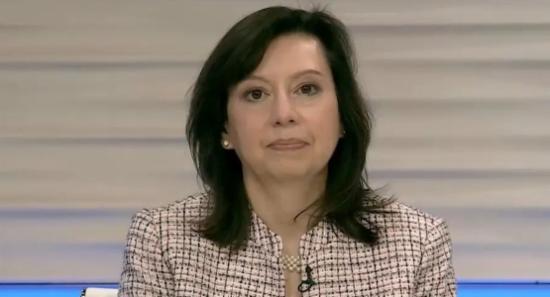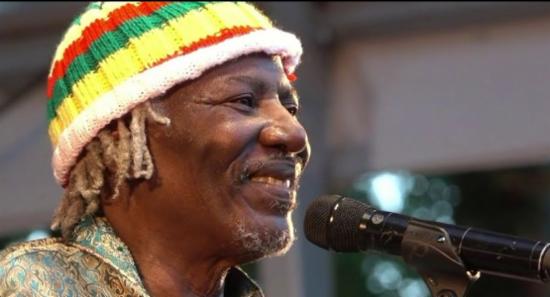.webp)
-700042.jpg)
Nobel Peace Prize winners 2022 announced
COLOMBO (News 1st) - The Norwegian Nobel Committee said it chose to jointly award Belarusian human rights activist Ales Bialiatski, the Russian human rights organization 'Memorial' and the Ukrainian human rights organization 'Center for Civil Liberties' the prize, saying on Twitter that they "represent civil society in their home countries."
The Nobel Peace Prize was set up by the Swedish scientist Alfred Nobel, known as the inventor of dynamite, and has been awarded since 1901. A total of 251 individuals and 92 organisations were nominated this year, the second highest number in any year.
The winner was chosen by the 5-member Norwegian Nobel Committee. There are five Nobel Prizes awarded, the others being for Physics, Chemistry, Medicine and Literature.
About the Nobel Peace Prize:
The Norwegian Nobel Committee is responsible for selecting the Nobel Peace Prize laureates.
By the terms of Alfred Nobel’s will the Nobel Peace Prize has been awarded by the Norwegian Nobel Committee since 1901. Alfred Nobel left no explanation as to why the prize for peace was to be awarded by a Norwegian committee while the other four prizes were to be handled by Swedish committees.
The Norwegian Nobel Committee is composed of five members appointed by the Storting (Norwegian Parliament). The committee’s composition reflects the relative strengths of the political parties in the Storting, and is assisted by specially appointed expert advisers.
Alfred Nobel : Alfred Nobel, in full Alfred Bernhard Nobel, (born October 21, 1833, Stockholm, Sweden—died December 10, 1896, San Remo, Italy), Swedish chemist, engineer, and industrialist who invented dynamite and other more powerful explosives and who also founded the Nobel Prizes.
At his death his worldwide business empire consisted of more than 90 factories manufacturing explosives and ammunition. The opening of his will, which he had drawn up in Paris on November 27, 1895, and had deposited in a bank in Stockholm, contained a great surprise for his family, friends, and the general public. He had always been generous in humanitarian and scientific philanthropies, and he left the bulk of his fortune in trust to establish what came to be the most highly regarded of international awards, the Nobel Prizes.
We can only speculate about the reasons for Nobel’s establishment of the prizes that bear his name. He was reticent about himself, and he confided in no one about his decision in the months preceding his death. The most plausible assumption is that a bizarre incident in 1888 may have triggered the train of reflection that culminated in his bequest for the Nobel Prizes.
Full text of Alfred Nobel’s will:
I, the undersigned, Alfred Bernhard Nobel, after mature deliberation, hereby declare the following to be my last will and testament with regard to such property as I may leave upon my death:
My nephews, Hjalmar and Ludvig Nobel, sons of my brother Robert Nobel, will each receive the sum of two hundred thousand crowns;
My nephew Emmanuel Nobel will receive the sum of three hundred thousand, and my niece Mina Nobel one hundred thousand crowns;
My brother Robert Nobel’s daughters, Ingeborg and Tyra, will each receive the sum of one hundred thousand crowns;
Miss Olga Boettger, presently residing with Mrs Brand, 10 Rue St Florentin in Paris, will receive one hundred thousand francs;
Mrs Sofie Kapy von Kapivar, whose address is known to the Anglo-Oesterreichische Bank in Vienna, is entitled to an annuity of 6000 florins Ö.W. which will be paid to her by the aforementioned bank, and to this end I have deposited in this bank the amount of 150 000 florins in Hungarian sovereign bonds.
Mr Alarik Liedbeck, residing at 26 Sturegatan, Stockholm, will receive one hundred thousand crowns;
Miss Elise Antun, residing at 32 Rue de Lubeck, Paris, is entitled to an annuity of two thousand five hundred francs. In addition, she is entitled to be repaid forty-eight thousand francs of capital that belongs to her and is currently deposited with me;
Mr Alfred Hammond, of Waterford, Texas, United States, will receive ten thousand dollars;
Miss Emmy Winkelmann and Miss Marie Winkelmann, of Potsdamerstrasse 51, Berlin, will each receive fifty thousand marks;
Mrs Gaucher, of 2 bis Boulevard du Viaduc, Nimes, France will receive one hundred thousand francs;
My servants, Auguste Oswald and his wife Alphonse Tournand, employed at my laboratory at San Remo, will each receive an annuity of one thousand francs;
My former servant, Joseph Girardot, of 5 Place St. Laurent, Châlons sur Saône, France, is entitled to an annuity of five hundred francs, and my former gardener, Jean Lecof, residing with Mrs Desoutter, receveur Curaliste, Mesnil, Aubry pour Ecouen, S.& O., France, will receive an annuity of three hundred francs.
Mr Georges Fehrenbach, of 2 Rue Compiègne, Paris, is entitled to collect an annual pension of five thousand francs from 1 January [1896] to 1 January 1899, when it will cease.
My brother’s children – Hjalmar, Ludvig, Ingeborg and Tyra – each have a sum of twenty thousand crowns, deposited with me against acknowledgement of receipt, which will be repaid to them;
All of my remaining realisable assets are to be disbursed as follows: the capital, converted to safe securities by my executors, is to constitute a fund, the interest on which is to be distributed annually as prizes to those who, during the preceding year, have conferred the greatest benefit to humankind. The interest is to be divided into five equal parts and distributed as follows: one part to the person who made the most important discovery or invention in the field of physics; one part to the person who made the most important chemical discovery or improvement; one part to the person who made the most important discovery within the domain of physiology or medicine; one part to the person who, in the field of literature, produced the most outstanding work in an idealistic direction; and one part to the person who has done the most or best to advance fellowship among nations, the abolition or reduction of standing armies, and the establishment and promotion of peace congresses. The prizes for physics and chemistry are to be awarded by the Swedish Academy of Sciences; that for physiological or medical achievements by the Karolinska Institute in Stockholm; that for literature by the Academy in Stockholm; and that for champions of peace by a committee of five persons to be selected by the Norwegian Storting. It is my express wish that when awarding the prizes, no consideration be given to nationality, but that the prize be awarded to the worthiest person, whether or not they are Scandinavian.
As executors of my testamentary dispositions, I appoint Mr Ragnar Sohlman, resident in Bofors, Värmland, and Mr Rudolf Liljequist, of 31 Malmskillnadsgatan, Stockholm, and Bengtsfors, close to Uddevalla. As compensation for their attention and efforts, I grant to Mr Ragnar Sohlman, who will probably devote most time to this matter, one hundred thousand crowns, and to Mr Rudolf Liljequist, fifty thousand crowns;
My assets currently consist partly of real estate in Paris and San Remo, and partly of securities deposited with the Union Bank of Scotland Ltd in Glasgow and London, with Crédit Lyonnais, Comptoir National d’Escompte, and with Alphen, Messin & Co. in Paris; with stockbroker M.V. Peter of Banque Transatlantique, also in Paris; with the Direction der Disconto Gesellschaft and with Joseph Goldschmidt & Cie in Berlin; with the Russian Central Bank, and with Mr Emmanuel Nobel in Petersburg; with Skandinaviska Kreditaktiebolaget in Gothenburg and Stockholm, with Enskilda Banken in Stockholm and in my strong box at 59 Avenue Malakoff, Paris; as well as of accounts receivable, patents, patent fees or royalties due to me, etc. about which my executors will find information in my papers and books.
As of now, this will and testament is the only one that is valid, and revokes all my previous testamentary dispositions, should any such be found after my death.
Finally, it is my express wish that following my death, my arteries be severed, and when this has been done and competent doctors have confirmed clear signs of death, my remains be incinerated in a crematorium.
Paris, 27 November, 1895
Alfred Bernhard Nobel
Other Articles
Featured News





.png )



-796915_550x300.jpg)
-796909_550x300.jpg)

























.gif)